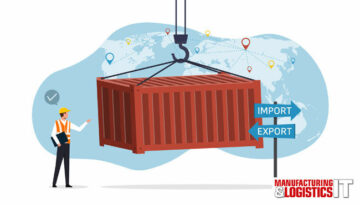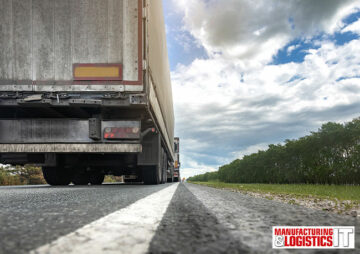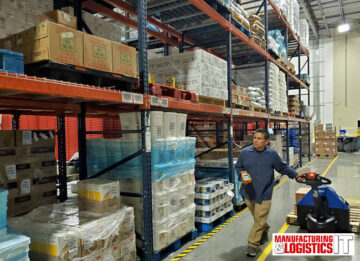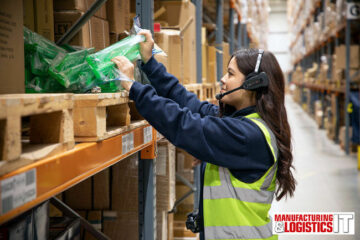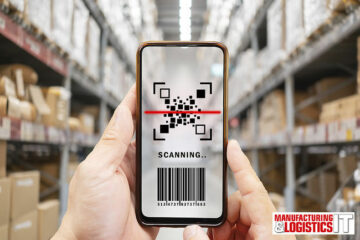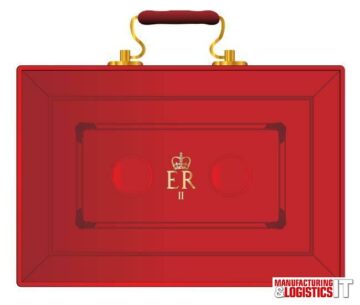RAIN Alliance, the non-profit industry organisation supporting the development and adoption of Ultra High Frequency (UHF) Radio Frequency Identification (RFID), has today announced that 44.8bn RAIN RFID tag chips were shipped globally in 2023. This figure represents year-on-year growth of 32%, and reflects increasing demand across a variety of industries for technology solutions that improve transparency, efficiency, traceability and sustainability.
“It’s fantastic to see the growth in RAIN RFID chip shipments over the past 12 months, which reflects the proliferation of applications in the retail, automotive, aerospace and healthcare sectors,” comments Aileen Ryan, President and CEO of RAIN Alliance. “No matter the industry, companies are united in their goal to reach maximum operational efficiency. RAIN RFID technology is a valuable tool for organizations to achieve this objective and benefit from the resulting cost, productivity and sustainability gains.”
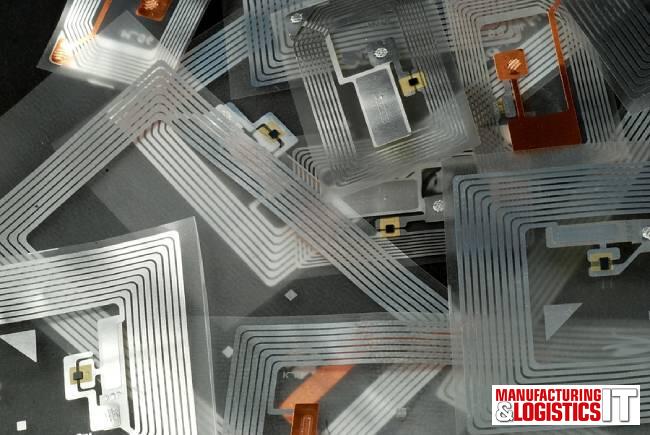
RAIN RFID technology connects billions of everyday items to the internet, enabling different industries to identify, locate, authenticate, and engage with items – be that a t-shirt, suitcase, tire or medical instrument. Use cases include tracking airplane safety equipment, improving retail inventory visibility and accuracy, optimizing warehouse operations and tracking a tire’s lifecycle. With enhanced transparency and real-time data from RAIN RFID technology, businesses can make smarter strategic decisions that drive efficiencies across their entire organization.
The growth in RAIN RFID tag chip shipments has now significantly exceeded the numbers forecasted by the RAIN RFID Market Research report from VDC. The report, commissioned by the RAIN Alliance in 2022, predicted 38.0bn shipments in 2023, and 88.5bn by 2026.
Ryan adds: “Adoption of RAIN RFID technology is set to continue thanks to the wide range of rapidly emerging use cases. Organizations are increasingly using tags to improve traceability of goods, for example, because the tags can confirm when a product was manufactured, the materials used, and their anticipated lifespan. This data enables smarter decision-making about recycling, refurbishment and reuse, as well as how to sustainably manage ‘end-of-life’. In this way, RAIN RFID can play a pivotal role in driving circularity in tomorrow’s economies.”
The annual research report conducted by the RAIN Alliance collates RAIN RFID tag integrated circuit / chip shipment data from the four leading tag manufacturers – Impinj, EM Microelectronic, NXP, and Quanray – all of whom are RAIN Alliance members.
- SEO Powered Content & PR Distribution. Get Amplified Today.
- PlatoData.Network Vertical Generative Ai. Empower Yourself. Access Here.
- PlatoAiStream. Web3 Intelligence. Knowledge Amplified. Access Here.
- PlatoESG. Carbon, CleanTech, Energy, Environment, Solar, Waste Management. Access Here.
- PlatoHealth. Biotech and Clinical Trials Intelligence. Access Here.
- Source: https://www.logisticsit.com/articles/2024/03/12/rain-alliance-reports-32-increase-in-global-rain-rfid-chip-shipments-as-adoption-and-usage-diversifies-across-multiple-industries
- :has
- :is
- 12
- 12 months
- 2022
- 2023
- 2026
- a
- About
- accuracy
- Achieve
- across
- Adds
- Adoption
- Aerospace
- Airplane
- All
- Alliance
- and
- announced
- annual
- Anticipated
- applications
- ARE
- AS
- authenticate
- automotive
- BE
- because
- benefit
- billions
- businesses
- by
- CAN
- cases
- ceo
- chip
- Chips
- circuit
- comments
- Companies
- conducted
- Confirm
- connects
- continue
- Cost
- data
- Decision Making
- decisions
- Demand
- Development
- different
- drive
- driving
- economies
- efficiencies
- efficiency
- emerging
- enables
- enabling
- engage
- enhanced
- Entire
- equipment
- everyday
- example
- exceeded
- fantastic
- Figure
- For
- four
- Frequency
- from
- Gains
- Global
- Globally
- goal
- goods
- Growth
- healthcare
- High
- How
- How To
- HTTPS
- Identification
- identify
- improve
- improving
- in
- include
- Increase
- increasing
- increasingly
- industries
- industry
- instrument
- integrated
- Internet
- inventory
- items
- jpg
- leading
- lifecycle
- lifespan
- make
- manage
- manufactured
- Manufacturers
- Market
- market research
- materials
- Matter
- maximum
- medical
- Members
- months
- multiple
- non-profit
- now
- numbers
- objective
- of
- operational
- Operations
- optimizing
- or
- organisation
- organization
- organizations
- over
- past
- pivotal
- plato
- Plato Data Intelligence
- PlatoData
- Play
- predicted
- president
- Product
- productivity
- proliferation
- Radio
- RAIN
- range
- rapidly
- reach
- real-time
- real-time data
- recycling
- reflects
- report
- Reports
- represents
- research
- resulting
- retail
- reuse
- Role
- Ryan
- Safety
- Sectors
- see
- set
- shipped
- significantly
- smarter
- Solutions
- Strategic
- Supporting
- Sustainability
- sustainably
- TAG
- Technology
- thanks
- that
- The
- their
- this
- tire
- to
- today
- tool
- Traceability
- Tracking
- Transparency
- Ultra
- United
- Usage
- use
- used
- using
- Valuable
- variety
- visibility
- Warehouse
- Warehouse Operations
- was
- Way..
- WELL
- were
- when
- which
- whom
- wide
- Wide range
- with
- zephyrnet

